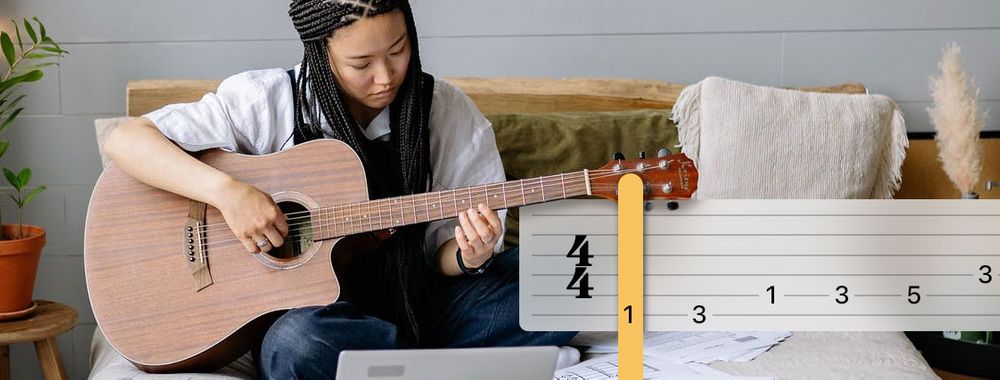As a beginner guitarist, it can be overwhelming to know where to start with learning scales. Scales are essential for developing your finger dexterity, improving your understanding of music theory, and expanding your soloing and improvisational skills. In this article, we will introduce you to three guitar scales that are a great place to start for beginners.
- The Major Scale The Major scale is the Tablature Guitare foundation of Western music and is used in a wide range of musical styles, including pop, rock, and classical music. To play the Major scale, start on a note and play every other note on the guitar until you reach the octave. For example, if you start on an open E string, you would play E, F#, G#, A, B, C#, D#, and back to E.
- The Minor Pentatonic Scale The Minor Pentatonic scale is a five-note scale that is used in blues and rock music. To play the Minor Pentatonic scale, start on a note and play every other note until you reach the fifth note, then skip to the next octave and repeat. For example, if you start on an open E string, you would play E, G, A, B, D, E.
- The Blues Scale The Blues scale is a variation of the Minor Pentatonic scale and is used in blues music. To play the Blues scale, start on a note and play every other note until you reach the fifth note, then add one more note before skipping to the next octave. For example, if you start on an open E string, you would play E, G, A, A#, B, D, E.
When practicing these scales, it is important to start slowly and focus on playing each note cleanly and in time. As you become more comfortable with the scales, you can increase your speed and experiment with different fingerings and techniques.
It is also important to practice these scales in different keys. For example, if you start with the Major scale in the key of E, try playing it in the key of A, D, or G. This will help you to develop your understanding of music theory and expand your soloing and improvisational skills.
In addition to practicing these scales, it is also important to use them in your playing. For example, you can try soloing over a chord progression using the Major, Minor Pentatonic, or Blues scale. This will help you to apply what you have learned and develop your musical skills.
In conclusion, the Major scale, Minor Pentatonic scale, and Blues scale are three essential guitar scales that every beginner should practice. By starting with these scales, you will develop your finger dexterity, improve your understanding of music theory, and expand your soloing and improvisational

